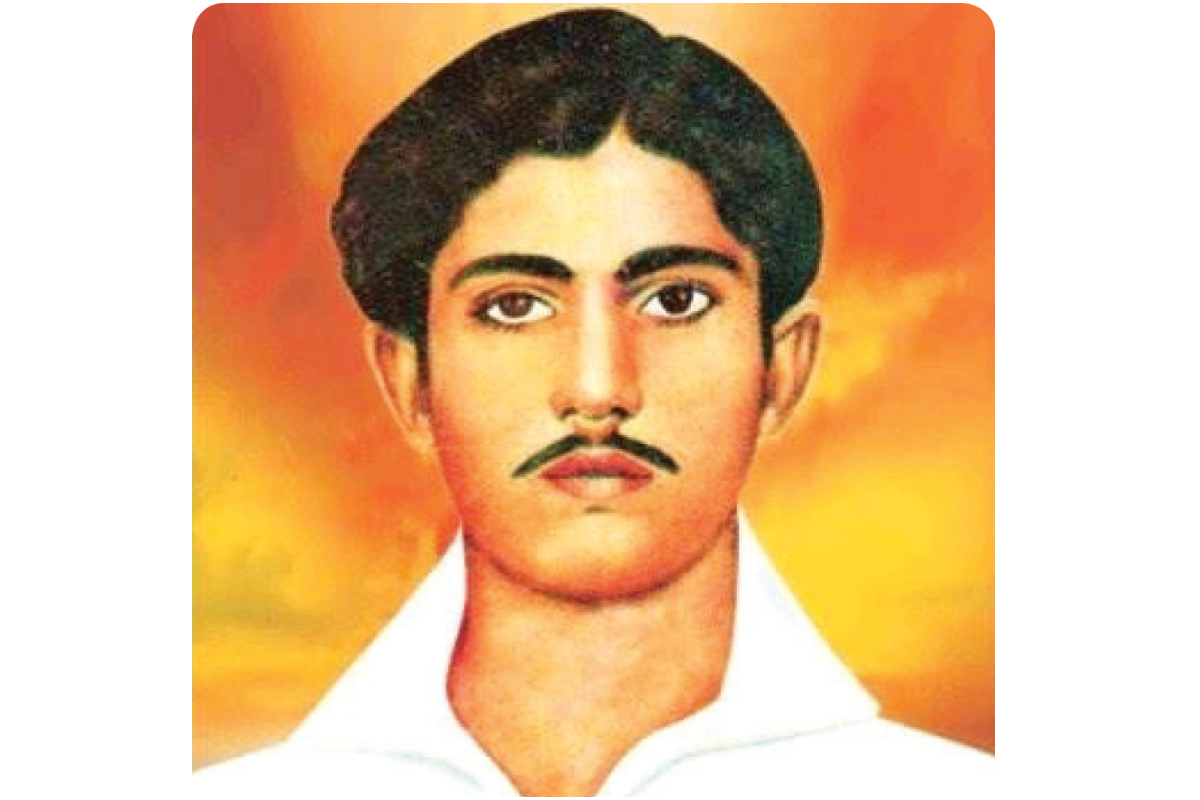
The high cost of freedom fighting
Remembering Hemu Kalani on his 80th death anniversary
Sajawal: Several thousand freedom fighters contributed to the subcontinent’s liberation from British rule and Hemu Kalani is one of them. The 21st of January marks the death anniversary of a notable but less celebrated freedom fighter.
Kalani was born on March 23, 1923, in a Hindu family in Sukkur, Sindh, on the day that prominent revolutionaries Bhagat Singh, Sukhdev, and Rajguru were hanged for treason.
He grew up amidst a wave of revolt against the ‘British Raj’ and was heavily influenced by the pre-independence state of affairs. Hemu began participating in protests and anti-British government movements at a young age, and according to some historians, he was 10 years old when he participated in an anti-government agitation for the first time and braved the security forces’ resistance.
Hemu was a young activist who was greatly inspired by Bhagat Singh and Gandhi, and as a result, he actively participated in the ‘Quit India’ movement. He was already a dynamic student leader prior to joining the ‘Quit-India’ movement. At the age of 17, he led the Swaraj Sena, a student union that launched campaigns in educational institutions against the British government’s bigotry and tyranny by raising public awareness.
After some time, Hemu and his allies launched a revolutionary movement against the ‘British Raj’, which resulted in violent protests across the subcontinent, causing massive loss of human life and state property.
He and his followers supported Gandhi’s ‘Quit-India’ movement, and in order to suppress the thriving movement, the British government dispatched troops and ammunition via railway track from Sukkur.
Hemu’s goal was to derail the train by dislocating the track’s fishplates, but because they lacked the necessary tools, they were unable to carry out their plan in time and were arrested by the British government for plotting against the state.
He and his colleagues were mercilessly tortured after their arrest. The government officials wanted them to reveal the names of their accomplices in the ‘conspiracy,’ but they remained silent despite bearing ignominious savagery.
The trial of Hemu and his associates began in Military Court, and Abdul Sattar Pirzada, father of Abdul Hafeez Pirzada, appeared as an advocate on behalf of the accused but failed to defend them because the British Government wanted Hemu and his associates to receive the death sentence.
The entire subcontinent rallied behind Hemu and petitioned the viceroy for mercy. The British government agreed to accept the petition on the condition that Hemu reveal the names of his allies. Hemu’s mother, Jethi Bai, met him in Sukkur jail and begged him to accept the government’s terms, but he refused.
”When Hemu was led to the gallows, he held the Bhagwat Geeta, the Hindu Holy Book, in his hand and was humming poetry of revolution and independence in a melodious voice because he had no fear of death,” historian Dr Amir Abbas Soomro writes.
A sea of people thronged into Sukkur Jail on the intervening night of January 20 and 21, 1943, to participate in the last rites of the Hemu, who embraced martyrdom during the course of the independence movement.
He was only 20 years old at the time of his execution, and his legacy lives on in both Pakistan and India. Several books and articles have been written about him by eminent historians from both countries, and he has had several public places and roads named after him.
In 2013, a jail barrack was named after him in Sukkur by the Sindh government. Even after 80 years, he is remembered and revered for his courage, which immortalised his character, as mentioned in a famous saying of Sindh language- which translates to, “Be brave as Hemu Kalani was.’
Hemu’s family migrated to India and settled there after the country’s independence. During the 1980s in India, a film based on his biography, ‘Amar Shaheed Hemu Kalani,’ was made in Sindhi and gained public recognition.
Catch all the Urban Insight News, Breaking News Event and Latest News Updates on The BOL News
Download The BOL News App to get the Daily News Update & Live News.












 Read the complete story text.
Read the complete story text. Listen to audio of the story.
Listen to audio of the story.